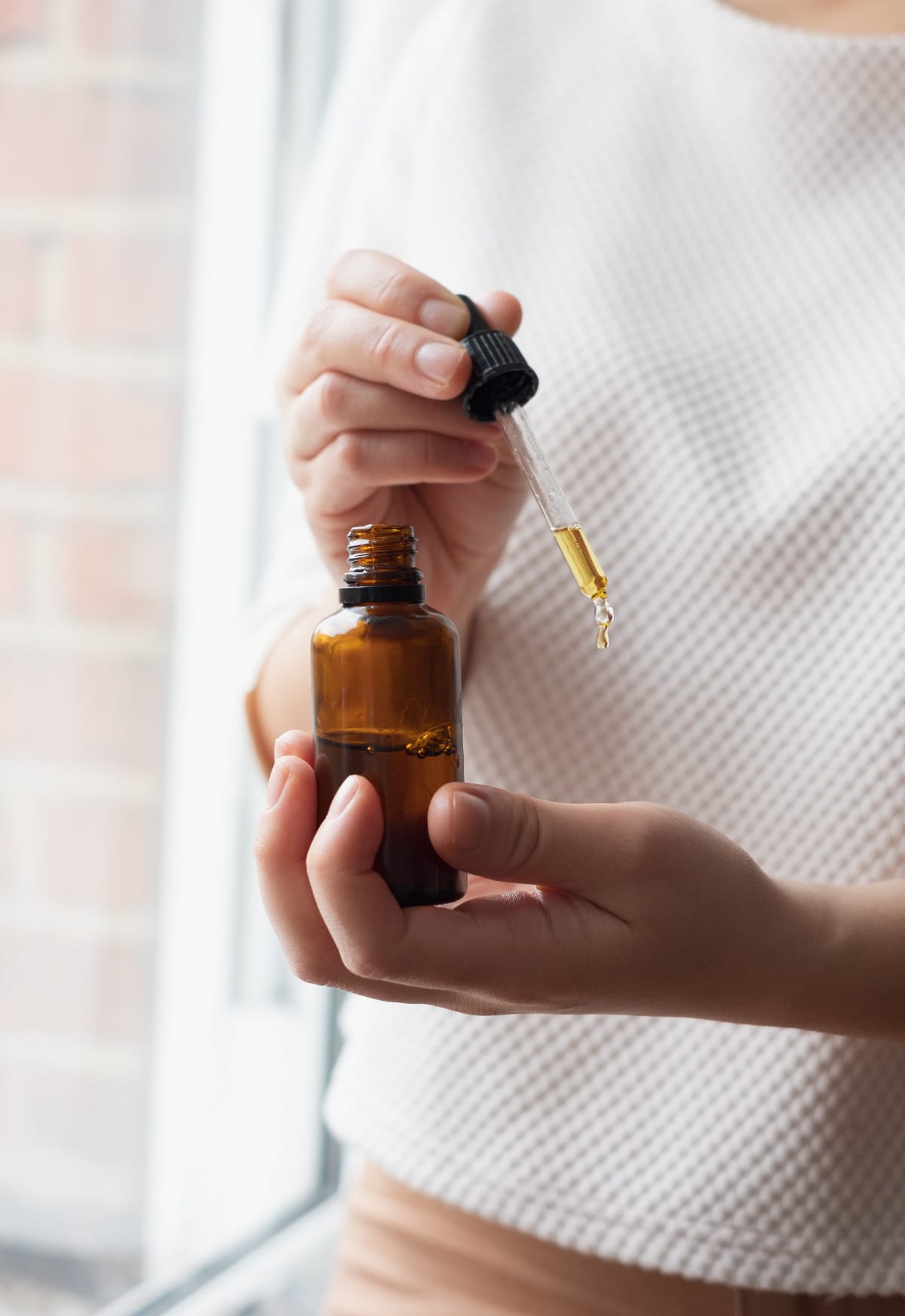
Eczema – it’s that irritating skin condition that can drive you nuts. The red, itchy patches are no joke, and if you’ve dealt with it, you know the struggle. But here’s the deal – there’s a natural warrior in the skincare game that goes by the name of castor oil, and people swear by it for tackling eczema.
Now, before we dive into the castor oil goodness, let’s quickly revisit what eczema is all about. It’s a skin condition that loves to make your skin red, itchy, and sometimes swollen. Picture dealing with that relentless itchiness – it’s like your skin is throwing a non-stop party, and you’re not invited.
Sure, there are medical eczema treatments out there, and some folks opt for those – which is totally fine. But some of you might be wondering if there’s more than that. And yes, there are: natural remedies. Today, we’re shining the spotlight on castor oil, the unsung hero for eczema.
So, if you’ve ever wondered about trying something more natural for that pesky eczema, stick around. We’re about to spill the beans on how castor oil for eczema might just be the secret your skin needs.
Castor Oil For Eczema
Castor oil, extracted from castor plant seeds, has been used for ages in skincare and medicine. Originating from Africa and India, this oil is a powerhouse for various skin issues, including eczema.
Why is it so good? Well, it’s packed with ricinoleic acid, which is like a superhero against inflammation and redness, perfect for soothing irritated skin caused by eczema. Plus, its antimicrobial properties help prevent infections and support wound healing.
But wait, there’s more – castor oil isn’t just for eczema. You’ll find it in lots of skincare products like creams and lotions, thanks to its moisturizing superpowers. Keeping your skin hydrated is crucial for managing eczema, and castor oil does the job well.
And it’s not just about skin – this oil does wonders for your hair, too. Use it regularly, and you’ll see improvements in your scalp health and hair strength and bye-bye to issues like dandruff.
The cool thing is people have been using castor oil for ages. Think ancient Egypt. They knew it was gold back then, and we’re still using it today for its all-around goodness.
So, if you’re dealing with eczema or just want happy skin and hair, castor oil is the way to go – a natural remedy that’s been standing the test of time.
Is Castor Oil Good For Eczema?
Absolutely! Castor oil emerges as a champ when it comes to providing relief for eczema-prone skin. Although no direct studies have linked castor oil with reducing eczema symptoms, its unique properties hint at potential benefits.
Healthline explains: One review of studies[1] from 2018 of several marketed creams included two that contained castor oil. Researchers found one of the creams prevented eczema flares and improved flares if they occurred. The other cream relieved symptoms in one study but not in another.
Castor oil’s thick consistency and powerful properties make it a dynamic solution for alleviating eczema symptoms. The natural goodness of castor oil brings a wealth of benefits to the table, making it a standout choice for those seeking a holistic approach to managing eczema.
Known for its moisturizing prowess, castor oil can quench your skin’s thirst thanks to its rich fatty acids. Also, castor oil boasts anti-inflammatory and antimicrobial properties, primarily due to the presence of ricinoleic acid.
This makes it an excellent option for calming irritated skin, reducing redness, and preventing infections – all crucial elements in the battle against eczema flare-ups. Its ability to create a protective barrier on the skin adds an extra layer of defense, locking in moisture and shielding against external triggers.
For those worried about the rapid growth of skin cells associated with eczema, castor oil’s antiproliferative effects could be a natural way to slow things down. Plus, its antimicrobial traits offer a protective shield against infections, a common concern in cracked and compromised skin.
For those looking to steer clear of chemical-laden options, castor oil offers a natural alternative that has been trusted for centuries. Its versatility extends beyond eczema, making it a staple in skincare routines for its contributions to overall skin health. To learn more about castor oil’s compatibility with your skin, check out “Is Castor Oil Good for the Skin?”.
Benefits Of Castor Oil For Eczema

Deep Moisturization: Quenching Your Skin’s Thirst
Ever felt like your skin is desperately in need of hydration? Castor oil’s got your back. It’s a heavyweight in the moisturizing game, thanks to its rich composition. The thick consistency of castor oil allows it to create a protective layer on your skin, preventing moisture loss and keeping your skin hydrated for longer periods.
How it works: When mixed with carrier oils like coconut, almond, or olive oil, castor oil becomes more manageable for application. This combo ensures a moisture-packed punch to your skin. The 1:1 ratio strikes the right balance, ensuring a smooth blend that deeply nourishes your skin cells.
Soothing Irritation: Calming The Eczema Storm
Eczema often comes with its own irritation symphony – redness, itching, and swelling. Castor oil takes on the role of the peacemaker here. Its anti-inflammatory properties, primarily due to the presence of ricinoleic acid, work to soothe irritated skin and reduce inflammation and redness caused by eczema flare-ups.
How it works: The ricinoleic acid in castor oil acts as a natural anti-inflammatory agent, calming the inflammatory response in your skin. This makes it a gentle yet effective solution for alleviating the discomfort associated with eczema.
Protective Skin Barrier: Guarding Against Eczema Triggers
Imagine a shield for your skin – that’s what castor oil creates. It forms a protective skin barrier that locks in moisture and shields your skin from external irritants, helping to prevent further aggravation of eczema.
How it works: The thick consistency of castor oil aids in forming a physical barrier on the skin’s surface. These skin barriers not only trap moisture but also act as a defense against potential triggers, providing a layer of protection for eczema-prone skin.
Overnight Healing: Letting Castor Oil Work It’s Magic
Sometimes, the best things happen while you sleep. Letting castor oil work its magic overnight can be a game-changer. The extended duration allows the oil to penetrate deeper into your skin, intensifying its moisturizing and soothing effects.
How it works: Applying castor oil before bedtime takes advantage of the skin’s natural regeneration process during sleep. The oil seeps into the skin overnight, working on multiple levels to hydrate, soothe, and promote overall skin health.
How To Use Castor Oil for Eczema
Wondering how to harness castor oil’s benefits for your eczema? Here’s a straightforward guide.
The Right Amount: Moderation Is Key
When it comes to castor oil, a little goes a long way. Applying an excessive amount might leave your skin feeling overly greasy. Aim for a moderate application, ensuring that the oil is spread evenly across the affected areas. Starting with a small amount allows you to gauge how your skin responds, preventing potential discomfort.
Begin with a conservative amount, such as a teaspoon, and adjust based on your skin’s needs. Remember, the goal is to provide ample moisture without overwhelming your skin.
Prolonged Contact: Keep It On For Longer
For optimal results, let castor oil linger on your skin a bit longer. After application, resist the urge to immediately wipe it off. Allowing the oil to remain on your skin for an extended period enhances its ability to deeply moisturize and soothe eczema-affected areas.
Consider applying castor oil before a period where you won’t need to wash it off quickly, such as before bedtime or during a relaxing evening at home. This gives the oil ample time to work its magic.
Combine Forces: Pair With Complementary Products
Boost castor oil’s effectiveness by teaming up with other skincare allies. Consider using a mild, fragrance-free moisturizer in conjunction with castor oil to enhance hydration. Additionally, incorporating products like oatmeal-based creams or colloidal oatmeal baths can provide extra relief for eczema-prone skin.
The combination of castor oil and a complementary moisturizer creates a potent duo for tackling dryness and irritation. Choose products that align with your skin’s sensitivity and needs.

Blend With Complementary Carrier Oils: Mix It Up For Maximum Impact
Castor oil plays well with others, especially when it comes to carrier oils, with their unique benefits. Experiment with blending castor oil with coconut oil, almond oil, or olive oil to create a powerhouse concoction. Each carrier oil brings its own set of nutrients to the table, enhancing the overall effectiveness in addressing eczema symptoms.
The 1:1 ratio guideline remains handy here. Combine equal parts castor oil with your chosen carrier oil to create a well-balanced blend. Coconut oil, for example, adds antimicrobial properties, while almond oil brings extra vitamin E to the mix. This combination ensures a diverse range of benefits for your skin, contributing to a more comprehensive approach to managing eczema.
Seek Professional Guidance: Consult A Medical Expert
While castor oil can be a fantastic addition to your skincare routine, it’s essential to consult a healthcare professional before making significant changes. If you’re unsure about how castor oil might interact with your skin or if you have any underlying health concerns, seeking advice from a dermatologist or healthcare provider is crucial.
Every individual’s skin is unique, and a healthcare professional can provide personalized recommendations based on your specific condition and medical history. People with eczema shouldn’t hesitate to reach out for expert guidance before incorporating castor oil into their routine.
Precautions
While castor oil is generally safe for external use, according to the National Eczema Association, it’s wise to tread carefully, especially if you have dry skin, sensitive skin, or eczema. Opting for yellow castor oil (it is made with a cold-pressing method. Which means that heat or chemicals aren’t involved in its production.) minimizes risks since it’s purer, reducing the chance of irritation. Nevertheless, everyone’s skin reacts differently, sparking the possibility of an allergic reaction.
Perform a patch test before going all in—apply a small amount to a discreet skin area and wait to see how your skin responds. If your skin doesn’t protest, you may have found a new ally in your eczema care routine.
For further guidance, connecting with a healthcare professional can provide personalized advice tailored to your unique skin needs, ensuring you’re making the best choices for your health.
Conclusion
Exploring natural remedies like castor oil for eczema can be a game-changer in your skincare routine. Remember, while it offers promising benefits due to its moisturizing and protective properties, it’s essential to listen to your body.
Starting with a patch test and keeping your healthcare professional in the loop ensures you’re taking a safe approach. Embracing castor oil could be your step towards soothing those troublesome eczema symptoms and treating eczema so your skincare journey is a bit more comfortable.
